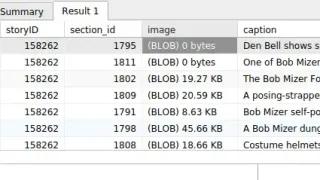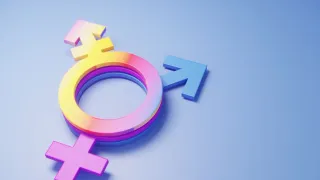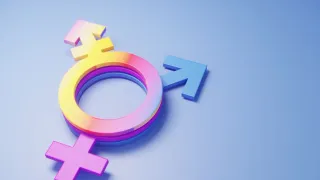Jun 17
Joe Locke Is "Tired of Playing the Skinny Gay Twink"
READ TIME: 2 MIN.
Joe Locke, best known for his breakout role as Charlie Spring in the hit Netflix series Heartstopper, has become a prominent figure for young LGBTQ+ audiences worldwide. However, in a candid recent interview, Locke discussed the limitations he faces in his acting career due to persistent typecasting as a "skinny gay twink"—a term that, while reclaimed by some, often signifies a narrow and stereotypical view of queer masculinity in media.
Locke’s comments came during a joint interview with fellow Marvel star Charlie Cox for Variety’s Actors-on-Actors series, where the two reflected on the challenges and opportunities of casting in the entertainment industry. Locke revealed: “A lot of the auditions I get sent are for skinny gay twinks… I am really good at playing that… because I am a skinny gay twink. I’m struggling now... I want to do the opposite of that."
He further shared his efforts to break out of this mold, saying, “I’ve been trying to put on weight recently. I just can’t do it. I know it’s like, ‘Oh, my metabolism’s too fast …’ In 10 years, I’m sure I’ll be like, ‘God, I wish!’” Locke’s openness underscores the personal and professional challenges queer actors can face when their identities become shorthand for limited on-screen roles.
Locke’s remarks have resonated strongly within the LGBTQ+ community and entertainment industry observers. Many fans and fellow actors have expressed support for Locke’s desire to explore more complex and varied characters. His comments have contributed to a growing conversation about the risks of typecasting queer talent, particularly gay men, in roles that reinforce narrow archetypes.
While Heartstopper has been lauded for its nuanced and affirming depiction of LGBTQ+ youth, Locke’s experience highlights that visibility does not always equate to diversity in representation. The concern is that repeated casting of queer actors in similar roles can limit their opportunities and reinforce stereotypes, even as their presence on screen increases.
Locke’s willingness to address typecasting head-on reflects a broader shift in the industry, with queer actors and creators increasingly calling for richer, more varied storytelling. In his interview, Charlie Cox offered a supportive perspective, noting that, as actors gain experience, the industry sometimes becomes more open to casting them in unexpected roles—an evolution Cox himself experienced when transitioning from earlier work to playing Daredevil, a character vastly different from his previous parts.
Locke’s own ambitions mirror those of a new generation of queer artists who seek roles that reflect the full spectrum of queer experience: from the comedic to the dramatic, from protagonists to complex antiheroes. As more actors voice these frustrations, advocates hope the industry will respond with more opportunities for LGBTQ+ talent to expand their creative horizons—both in front of and behind the camera.
For Locke, the next chapter may soon include roles that challenge expectations and open new doors for both himself and audiences eager for stories that go beyond the familiar. As he continues to speak up, Locke is helping to pave the way for a future where queer actors are no longer defined by stereotypes, but by their range and talent.






